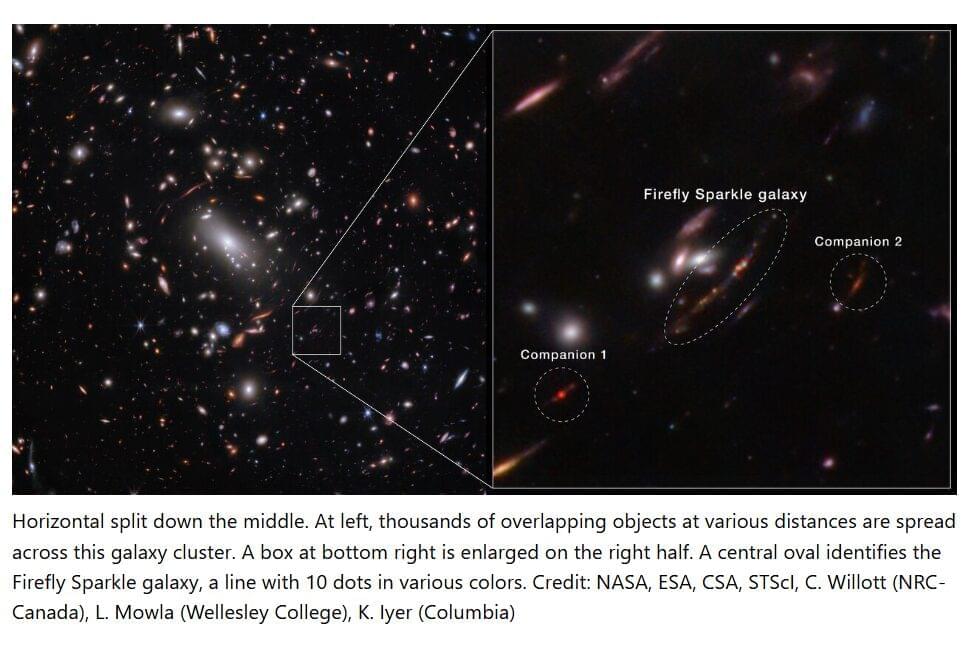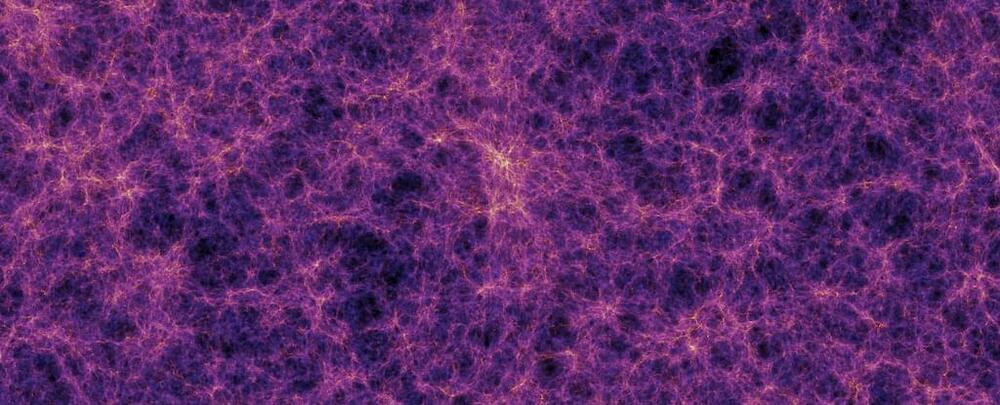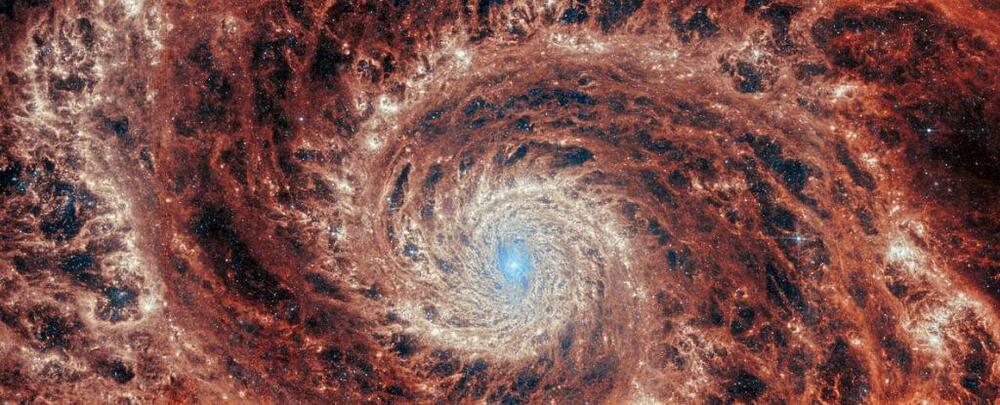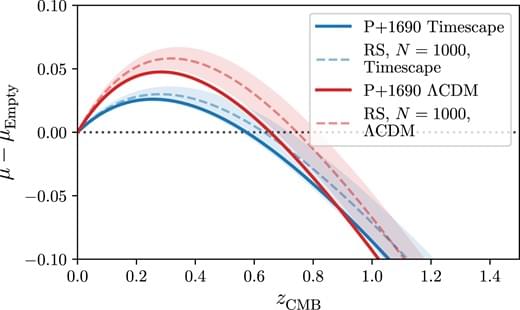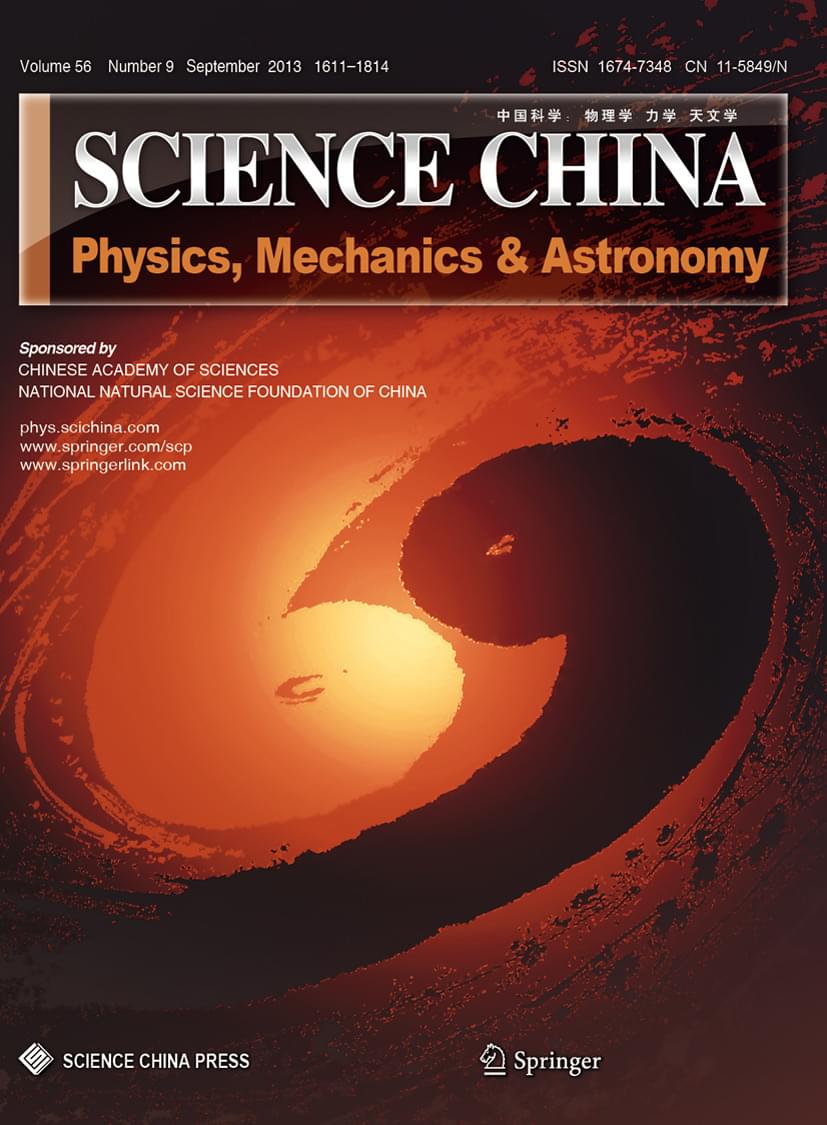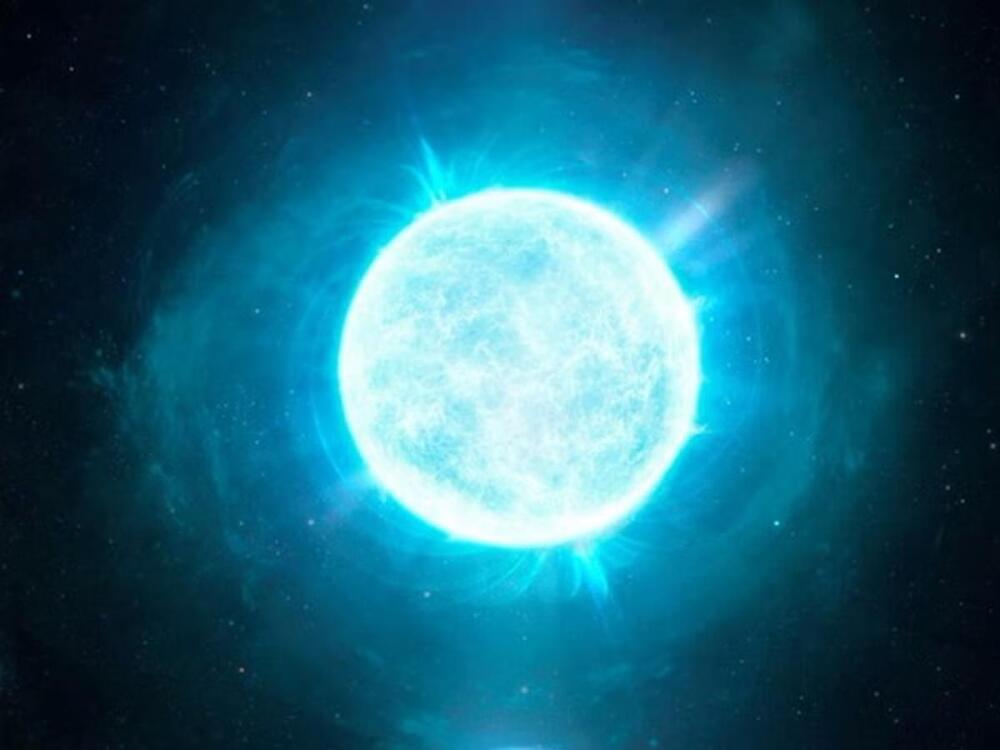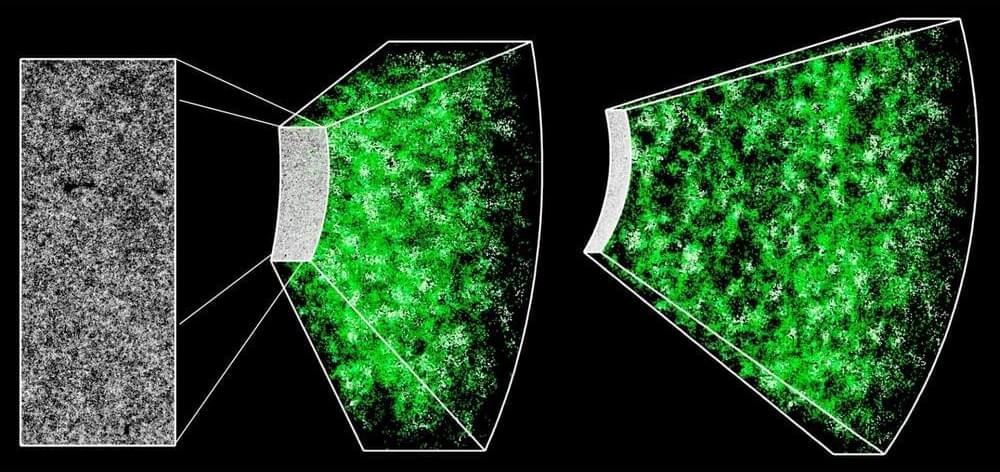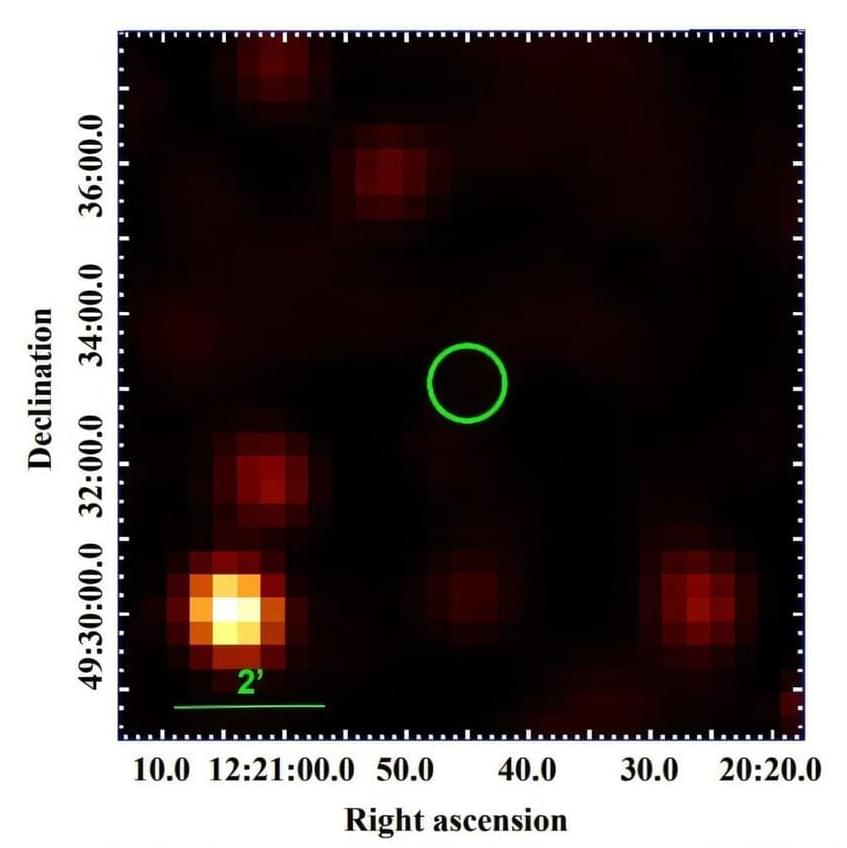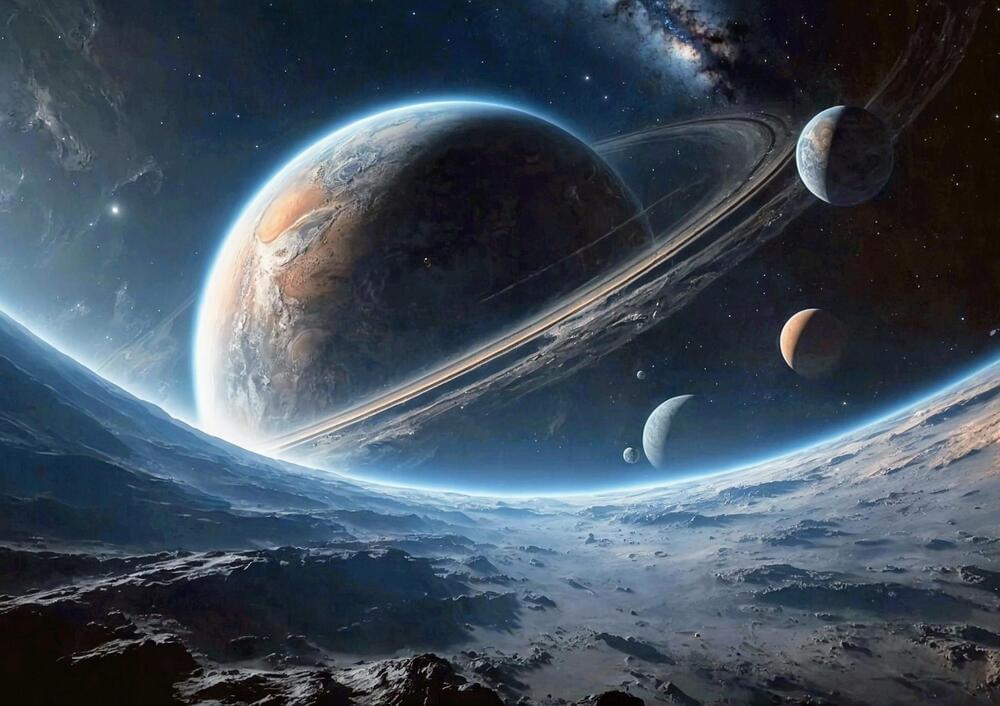For the first time, the NASA/ESA/CSA James Webb Space Telescope has detected and “weighed” a galaxy that not only existed about 600 million years after the Big Bang, but also has a mass that is similar to what our Milky Way galaxy’s mass might have been at the same stage of development.
Other galaxies Webb has detected at this period in the history of the universe are significantly more massive. Nicknamed the Firefly Sparkle, this galaxy is gleaming with star clusters—10 in all—each of which researchers examined in great detail. Their work is published in Nature.
“I didn’t think it would be possible to resolve a galaxy that existed so early in the universe into so many distinct components, let alone find that its mass is similar to our own galaxy’s when it was in the process of forming,” said Lamiya Mowla, co-lead author of the paper and an assistant professor at Wellesley College in Massachusetts. “There is so much going on inside this tiny galaxy, including so many different phases of star formation.”
